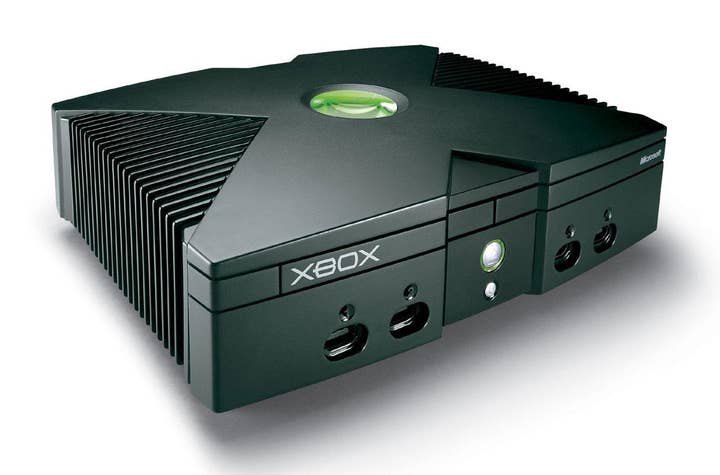Microsoft floated the idea of giving away the Xbox
Original Xbox co-creator Seamus Blackley said some people pushed for buying Nintendo too, among other crazy ideas
In our recent interview with Oddworld Inhabitants' Lorne Lanning, apart from discussing the problems that capitalism and growth models bring to game development, we also chatted for a time about the early days of the first Xbox. Lanning was convinced to switch from PlayStation to Xbox, bringing Munch's Oddysee to the platform's launch, which was a major coup for the upstart Xbox team within Microsoft. As it turned out, one of the reasons that Oddworld jumped ship to Xbox was the chance that the system could have been given away.
"At the time, Xbox thought that the core market was going to be casual. They were going to be the casual gamers' machine. Now, that's why they approached us because they said 'we think you've got something that competes in that Mario space and we think Mario's the thing to kill ... We see that space. We want that audience. We love Oddworld so why don't you get on this bandwagon? And we might give the box away'," Lanning explained to GamesIndustry.biz.
"So now you're like, 'look, if you're going to give the box away, you're going to win. If you're going to win, we want to be on board'."
Obviously, things changed before Microsoft went to market with its first games console, but the conversations internally were all over the place, according to Xbox co-creator Seamus Blackley, who helped draft the Xbox proposal and assemble the design team.
"Everybody and their brother who saw the new project starting tried to come in and say it should be free, say it should be forced to run Windows after some period of time"
Seamus Blackley
"In the early days of Xbox, especially before we had figured out how to get greenlit for the project as a pure game console, everybody and their brother who saw the new project starting tried to come in and say it should be free, say it should be forced to run Windows after some period of time," Blackley told us.
The idea there essentially would have been to use Xbox as a trojan horse for Windows. It's probably smart that they didn't attempt that, however. As Lanning observed to us, the entertainment industry didn't share any love for the operating system.
"You got the brand that everyone resents having to buy, how's that going to work in the entertainment industry? See, we don't need your OS in the entertainment industry. We don't need shit from you in the entertainment industry. In fact, if anything you do runs like fucking Windows, we don't want anything to do with it, right? That was a very common perception," Lanning said. "There was a lot of resistance; it was, 'Microsoft Game Studios? Fuck Microsoft!' And we went around the world defending them. We said, 'Look, this is about building better environments for developers so that you can get better games at cheaper prices and developers can stay in business longer'."
Blackley noted that a number of other ideas were pushed around at Microsoft too. Some people said Xbox should be focused on playing movies, or that all the games would have to be made by Microsoft. Some even pushed the notion that Microsoft should make a huge play and just gobble up Nintendo. "Just name it, name a bad idea and it was something we had to deal with," Blackley lamented.
In the end, those bad ideas were swept under the rug, and the Xbox team wound up producing an excellent platform that ushered in a new era of first-person shooters on console (beginning with Halo) and laid the foundation for a revolutionary online service in Xbox Live. As Lanning put it, while Microsoft was a corporate behemoth, the Xbox team was out to prove itself within those walls.
"These guys, Kevin Bachus, Seamus Blackley, Ed Fries, were in there fighting for it. So then they sold [the idea], and then selling it, they had to deliver it. So they had this, 'We need to do this!' [attitude]. They were on the line the way a small developer is. They were hungry," he remarked. "It wasn't like they had a job and they got assigned to make this work. They did it more like it was a venture and they had to prove it and they had to sell it and they had to own it and deliver on it. When you combined all those factors, you had a really interesting moment. And it was a great machine."

